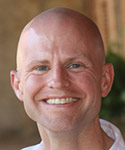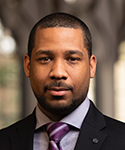One challenge facing a denominational or judicatory leader is navigating a complicated and regularly shifting environment of expectations, assumptions, desires, requests and demands.
How can a leader pursue that difficult, healthy and holy balance between meeting the needs of individual congregations and their leaders and, at the same time, serving the larger church and its mission priorities?
These pressures are increasing as denominations and judicatories continue to adjust to the realities of a changed and changing church -- of reduced budgets, smaller staffs and rising ecclesial anxiety. Many congregations and their leaders are experiencing similar realities in their own contexts as well, and so are increasingly asking their denominational leaders, “What have you done for me lately?”
Denominational leaders, in many places, must learn to do more, for more, with less.
In recent trips to three different regions of the country, I have heard creative and provocative responses to this contemporary pressure. In each place, I heard leaders articulate a greater clarity about what it means to be a denominational leader and equip the saints for ministry.
One senior denominational staff person told me, “We now only feed the birds that have their mouths open.” His judicatory staff is focusing its time, effort and energy on congregations and congregational leaders that are seeking to be and to lead the faithful church of the future. Congregations held hostage by nostalgia, apathy or intractable conflict are simply no longer priorities for judicatory staff. Some other congregational matters, including clergy misconduct, will still demand denominational attention, but this leader’s staff is trying to streamline processes to minimize the energy spent on these situations. The focus is on the future.
For another judicatory leader, contemporary pressures have helped her articulate what meaningful assistance to a congregation actually looks like. The model of regional ministry she inherited, she says, perpetuated co-dependent relationships between congregations and judicatory staff. Congregations were regularly disempowered as the regional judicatory kept expanding its work and its reach to justify its relevance. Now, with her bishop’s permission, she is encouraging congregations to exercise their own agency. “That which a congregation can do for itself, it should” is her mantra.
She is redirecting her energies to resource congregations in areas many find difficult, including writing grants, building networks, developing curricula and gathering leaders to share their learning with one another. For her, a judicatory’s work is about catalyzing and facilitating conversations that shape the church and the culture in which it exists.
The third judicatory leader is following her own passion, interest and sense of calling to focus on questions about trends in part-time ministry and transition ministry. In her context, as in many other regions of the country, the church has seen a dramatic increase in its need for the gifts of clergy who are willing to serve, often bivocationally, in part-time ministry in small-membership congregations. Increasingly, the church also needs leaders who are trained to serve as intentional interims or transitional clergy following long-tenured pastors.
This leader is in the early stages of building relationships with partner institutions to develop and evaluate systems for training these clergy and to design the support structures necessary to sustain their ministries. She is hoping that, through her focus and through her region’s experiments, her judicatory might become a model, forming future clergy for the future church.
These three leaders are not alone. Many other people, across traditions and geographies, are finding that this season’s pressures are an opportunity to redefine their roles. They are dissatisfied with the legacy they have received, and they simply refuse to be middle or upper management in the way that they have seen it practiced. They are changing the work for the sake of the church in the future. And as they do, they are finding new life and new purpose in their ministries.









